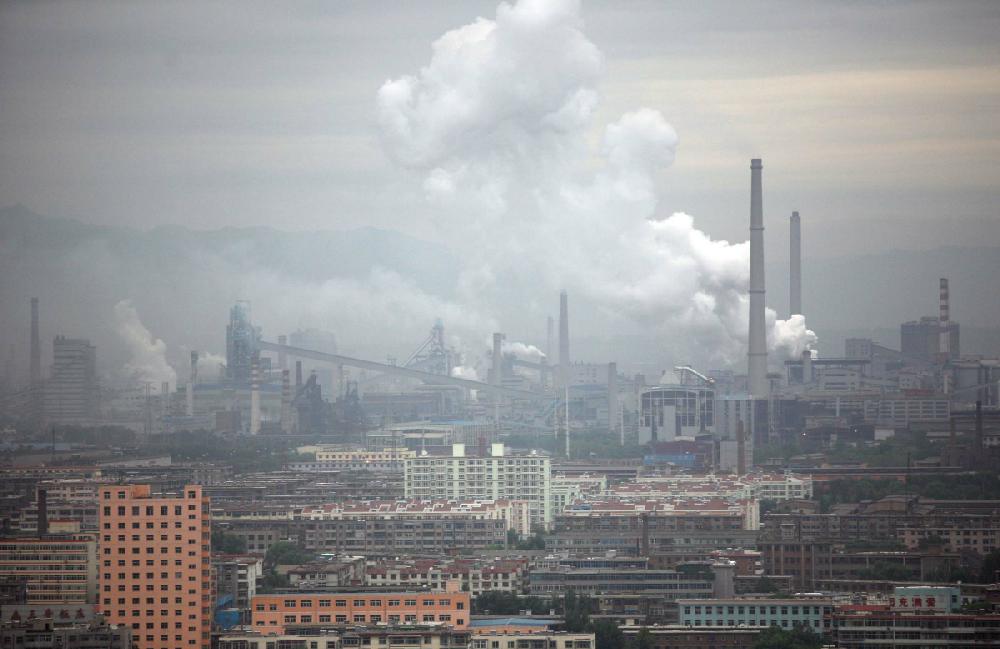More than 190 nations including the U.S., China and Saudi Arabia vowed to step up their efforts to fight climate change despite concerns that U.S. President-elect Donald Trump will pull the United States out of the process
when he takes office next year.
Envoys and more than 50 national leaders in Marrakech, Morocco, agreed early Saturday to a road map for developing a rulebook by 2018 that will strengthen the Paris Agreement signed last year. The deal strives to limit fossil-fuel emissions, which it says will help keep temperature increases to 2 degrees Celsius -- about 3.6 degrees Fahrenheit -- by the end of the century.
"We've fulfilled the job we came here to do," European Union Climate and Energy Commissioner Miguel Arias Canete said in an interview immediately after the talks wrapped up. "The message this sends to America is that there is full commitment from the global community, that climate change is such a big challenge that it's much more important than countries and their elections."
Even delegations that previously frustrated progress at the United Nations talks went out of their way to urge Trump to cast aside his skepticism and embrace cleaner forms of energy. Trump said before the U.S. election that the idea of climate change is a hoax invented by China and that he'd scrap the Paris accord after taking office Jan. 20.
But Thani Ahmed Al Zeyoudi, climate change and environment minister for the United Arab Emirates, said in an interview just before the talks concluded that "we're really confident" Trump will help efforts to address climate change.
"Trump is coming from the private sector," he said. "He's a businessman, and he sees there are huge business opportunities" from renewable forms of energy.
India and Brazil kept the talks running past midnight, disagreeing over how to move forward on a list of issues from Paris, such as negotiating a long-term climate finance goal and time frames for countries' carbon-reduction targets. A compromise was eventually reached with countries agreeing to return to those issues at talks in Bonn, Germany, next year.
During the talks, Saudi Arabia ratified the Paris accord, and 48 of the most vulnerable countries vowed to fuel their economies with 100 percent renewable energy by between 2030 and 2050. China's envoy noted that U.S. Presidents Ronald Reagan and George H.W. Bush started the climate talks long before officials in China were engaged in the issue. Trump's transition team has offered few comments on climate change since the election.
Even with the Paris Agreement, temperatures are set to rise by as much as 3.4 degrees Celsius -- about 6.1 degrees Fahrenheit -- by 2100 from pre-industrial levels, according to a United Nations report this month. That would mark the quickest shift in the climate since the end of the last ice age some 10,000 years ago, threatening to upend economies worldwide with more powerful storms and frequent droughts.
"We don't know what countries are still waiting for to move towards net carbon neutrality," said Edgar Gutierrez, Costa Rica's environment and energy minister. "All parties should start the transition, otherwise we all suffer."
The talks in Marrakech last week were focused on a number of technical measures that would help flesh out the 13-page Paris Agreement sealed in the French capital in December. Those include a partnership among nations aimed at spurring use of renewable energy; a Paris Committee on Capacity Building that will start work next year helping developing nations build their ability to rein in emissions and adapt to climate-related problems; and a pledge by Germany, Italy, Sweden and Belgium for $81 million that the Adaptation Fund requested to pay for projects such as sustainable agriculture and ecosystem restoration.
Delegates drawn mostly from energy and environment ministries appeared confident that they could still deliver on the ambitions of the Paris Agreement even if Trump renounces it.
"The transformation to a climate-friendly world agreed on in Paris is well underway and can no longer be halted," German Environment Minister Barbara Hendricks said Friday as the talks drew to a close.
China, which helped prevent an agreement in 2009, said that even without all countries aboard, the U.N. process would advance just as it did after the U.S. renounced the Kyoto climate accord in 2001.
A Section on 11/20/2016

